
Photo Editing For Beginners - Where Do I Start? 9 Things To Help You
To help you get started with editing photos here are 9 things that will help you
What actually is photo editing?
Do I have to edit my photos?
What stuff do I need to edit photos?
Where do I put my photos?
How long does it take to edit a photo?
How do I know when I have finished editing a photo?
What about photos taken on my phone?
Don’t obsess about this too much
Enjoy editing photos

9 Reasons Why Camera Sensor Size Matters? And What This Really Means To Us!
The size of a camera sensor sizes determines
The actual focal lengths that you get from a lens
The resolution of images captured
The sizes of image files
The amount of depth of field
The standard of low-light performance
The dynamic range that can be captured
The amount of noise that might be found in a photo
The size and weight of the camera and lenses
The cost of the camera and lenses
So yes, it is fair to say that the size of a camera sensor matters.
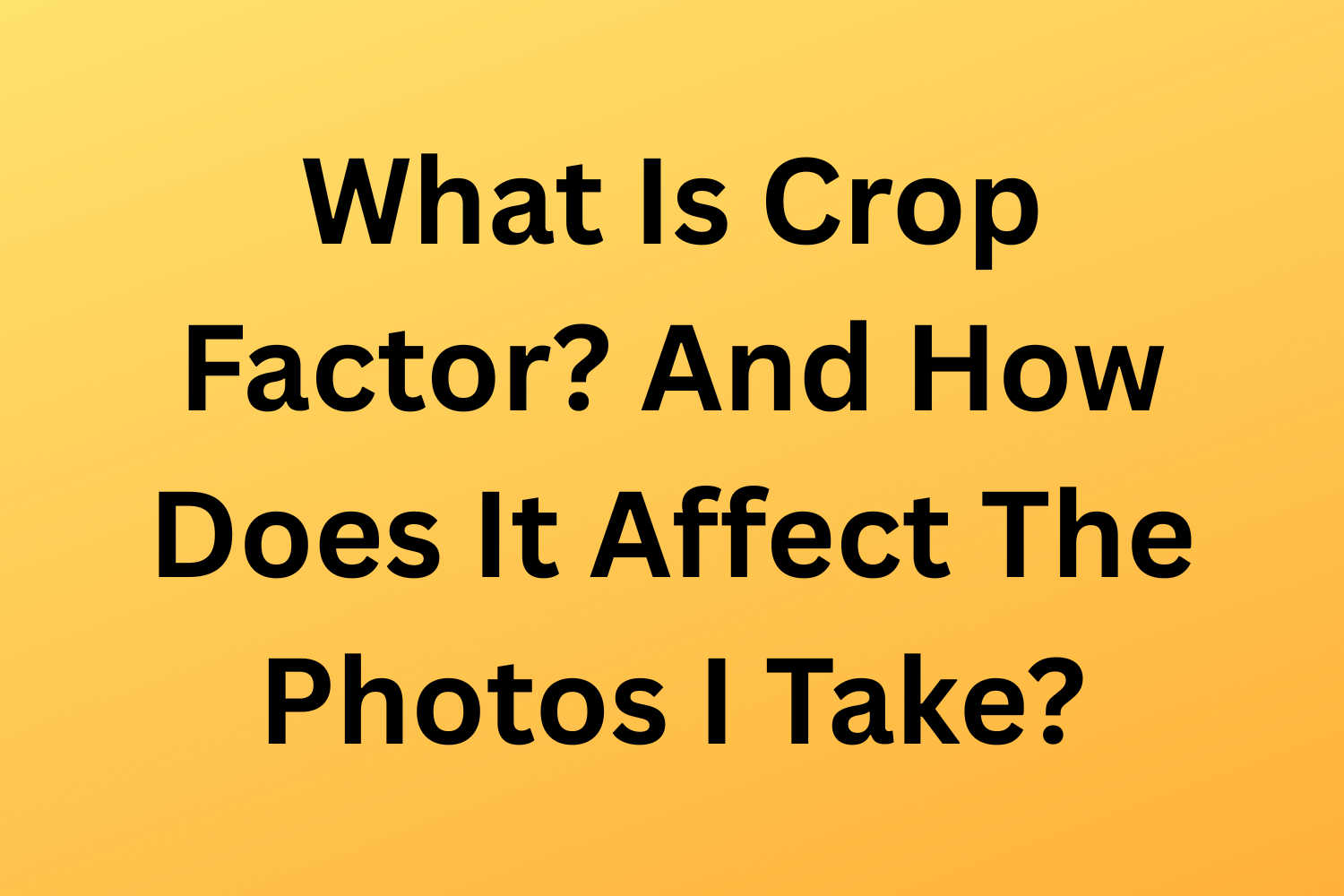
What Is Crop Factor? How Does It Affect The Photos I Take?
Crop factor is a number used to calculate the effective focal length of a camera lens on a cropped sensor or micro four thirds camera, compared to the same focal length on a full-frame camera. Photos taken with cropped sensor and micro four thirds cameras are in effect zoomed in when compared to the same focal length on a full-frame camera. Photos taken at the same focal length on cropped sensor and micro four thirds cameras have a narrower field of view, meaning you get less in the photo.
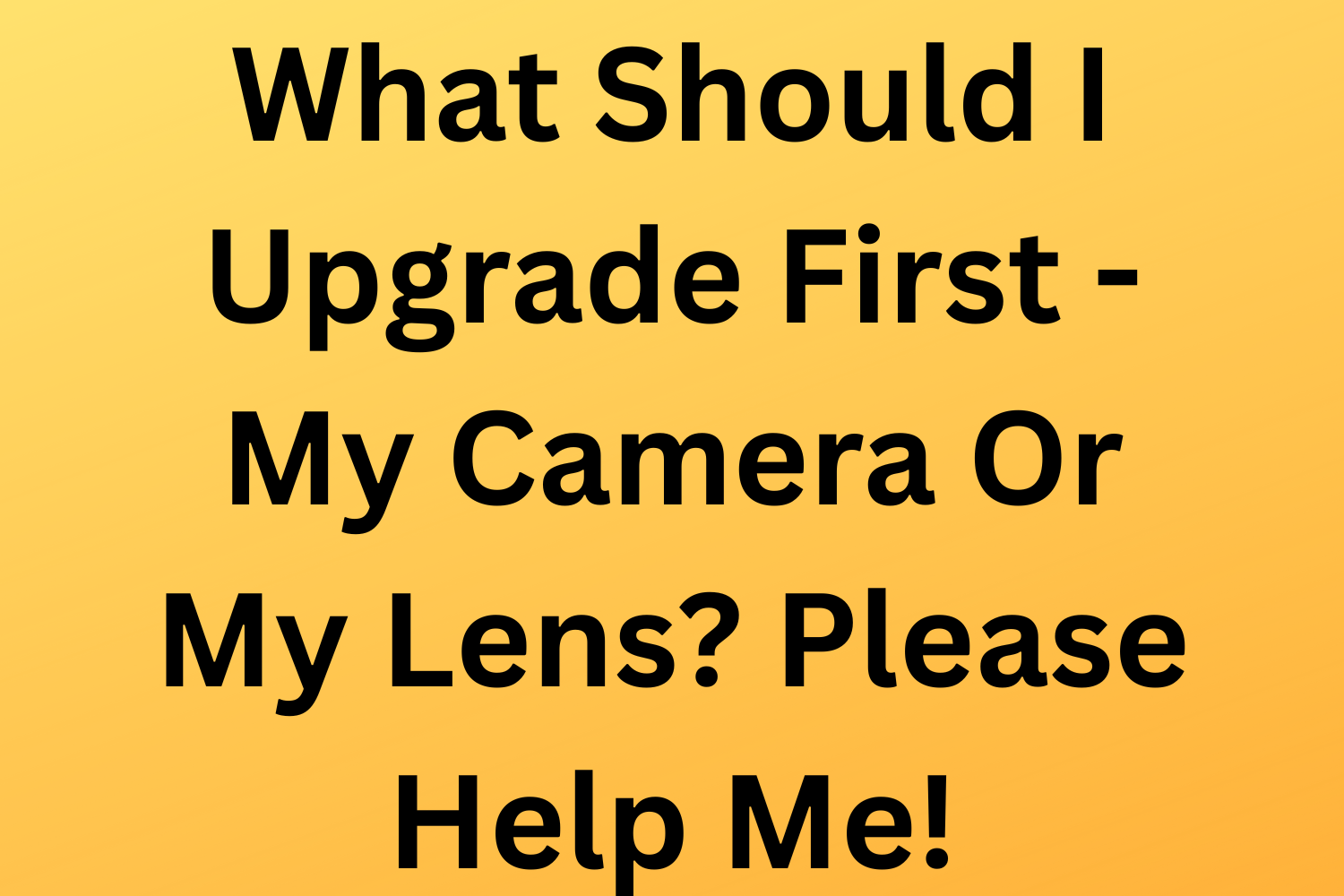
What Should I Upgrade First - My Camera Or My Lens? Please Help Me!
You should upgrade your lens before you upgrade your camera if you want to get higher quality, sharper images. Upgrading your camera lens will generally improve the quality of your photos more than replacing your camera body. You will also be able to shoot a wider range of subjects with a new lens. Camera lenses also have a longer working life than cameras and are upgraded less frequently by manufacturers.
There will be times when you need to replace your camera first, but I will come onto them.
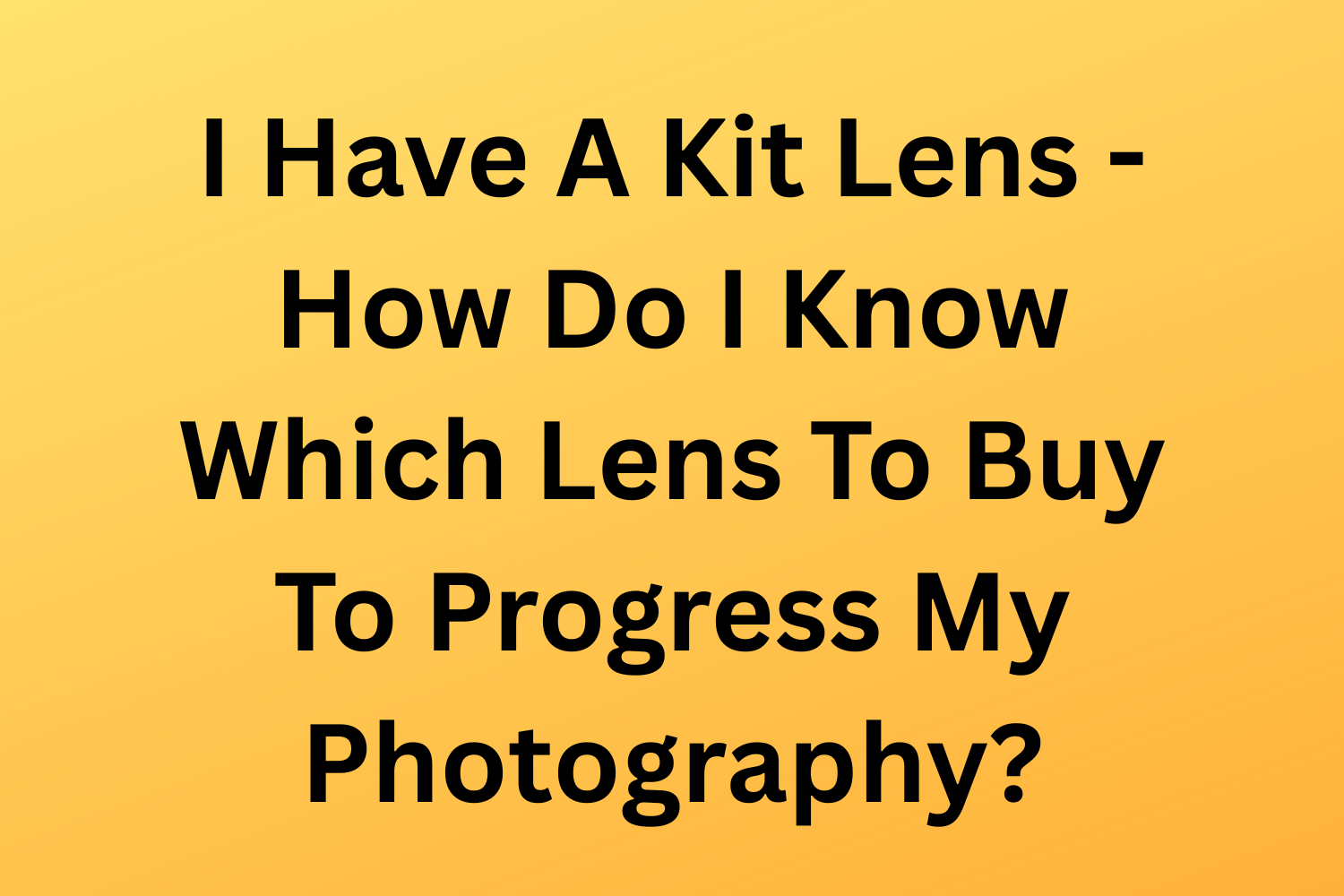
I Have A Kit Lens - How Do I Know Which Lens To Buy To Progress My Photography?
If you have a kit lens and want to progress with your photography you need to answer the following questions
What do you want to use the new lens for?
What will this new lens enable you to do that you cannot do with your kit lens?
How much are you willing/ comfortable to pay for a new lens?
Do you want a zoom lens or a fixed focal length lens?
Are you planning on changing your camera/ camera system?
Do you buy a lens made by your camera manufacturer, or do you buy a lens made by someone else?
New or second hand?
Are you going to buy any other lenses in the future?
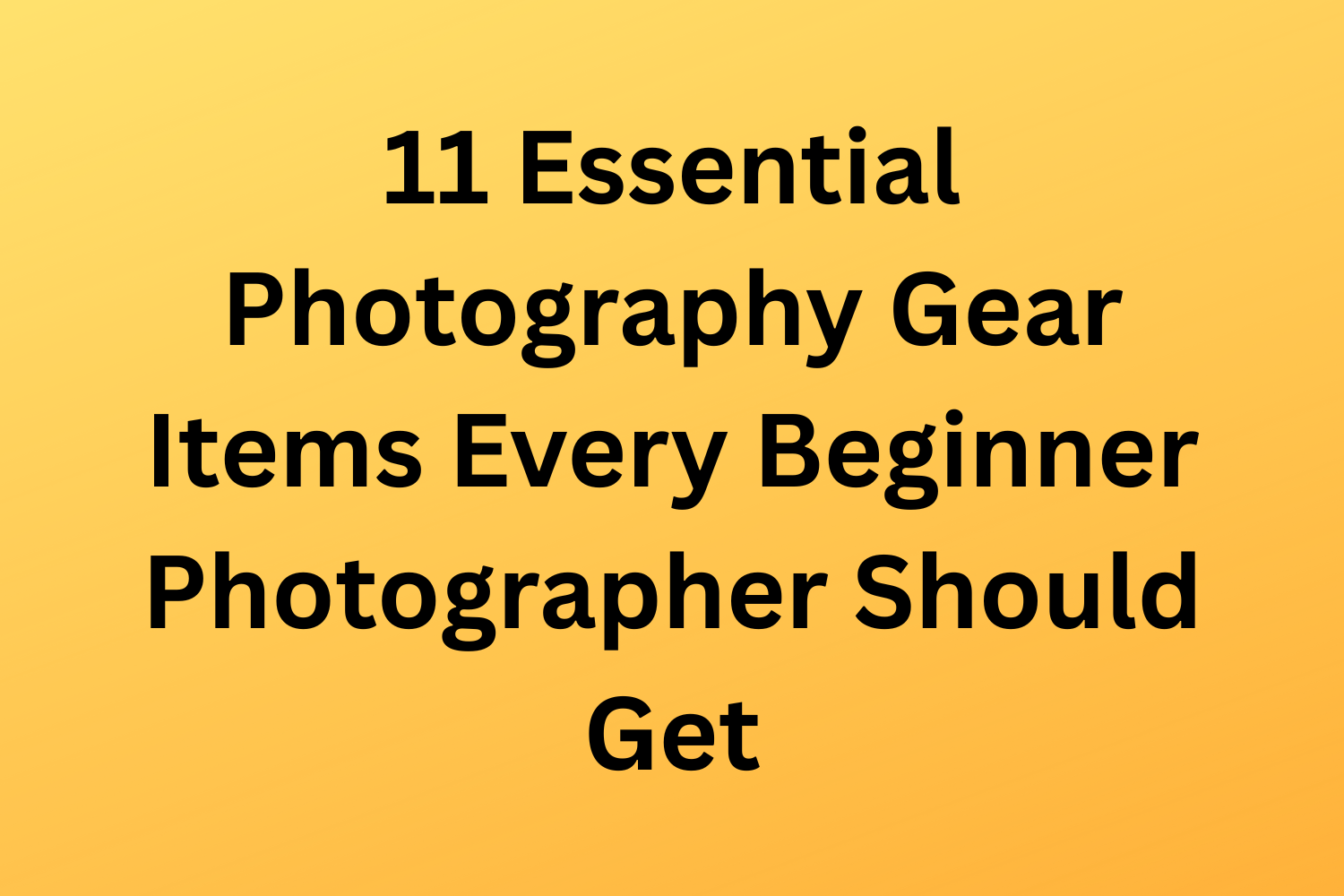
11 Essential Photography Gear Items Every Beginner Photographer Should Get
I am going to tell you 11 essential bits of photography gear that will get you going taking great photos. They are
A tripod
Hurricane/ brush blower
Pec Pads
Lens cleaning solution
Spare batteries
Memory cards
Memory card cases
ND filter
Book
Camera Bag
Another lens
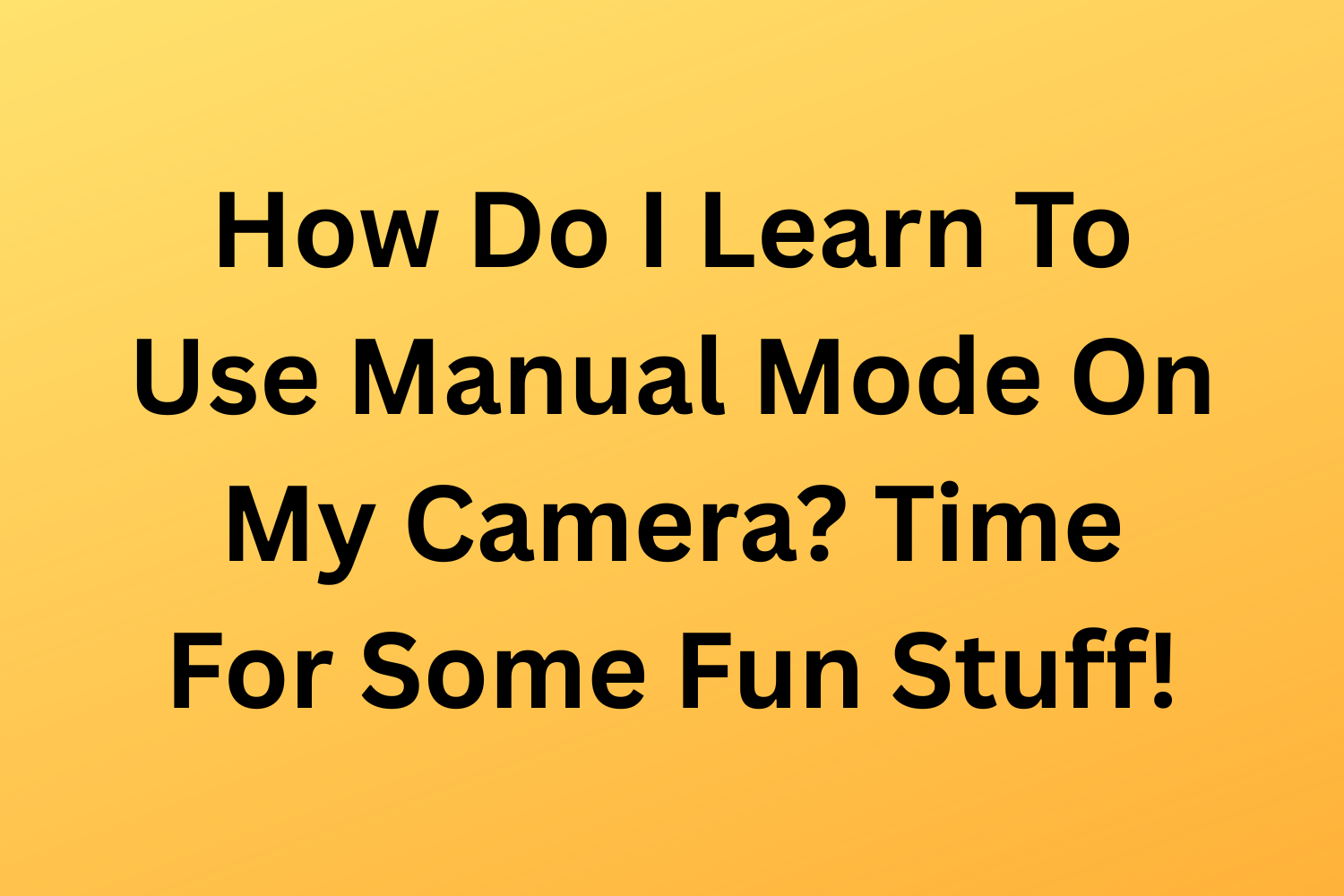
How Do I Learn To Use Manual Mode On My Camera? Time For Some Fun Stuff!
To learn how to use manual mode you need to start by putting your camera in manual mode. Take photos with the camera's suggested aperture, shutter speed, and ISO combination. Then experiment with different apertures, shutter speeds and ISOs, and combinations of the three. And check out what has happened when you changed these things.
Take photos that are correctly exposed, underexposed, and overexposed. I did this and it helped me to understand what was going on. It helped me to understand the aperture, shutter speed, ISO, and how they work together.
When I applied what I had learned to my photos, the photos that I took started to improve. And that was the beginning of my journey to where I am now.

What Does Manual Mode Mean In Photography?
Manual mode is the mode on your camera that you use where you set the aperture, shutter and ISO to get the best exposure when you take a photo. You decide all the camera settings, not the camera. You should learn how to use manual mode as there are times when you will need it. Learn manual mode and it will help you to understand and use the exposure triangle.
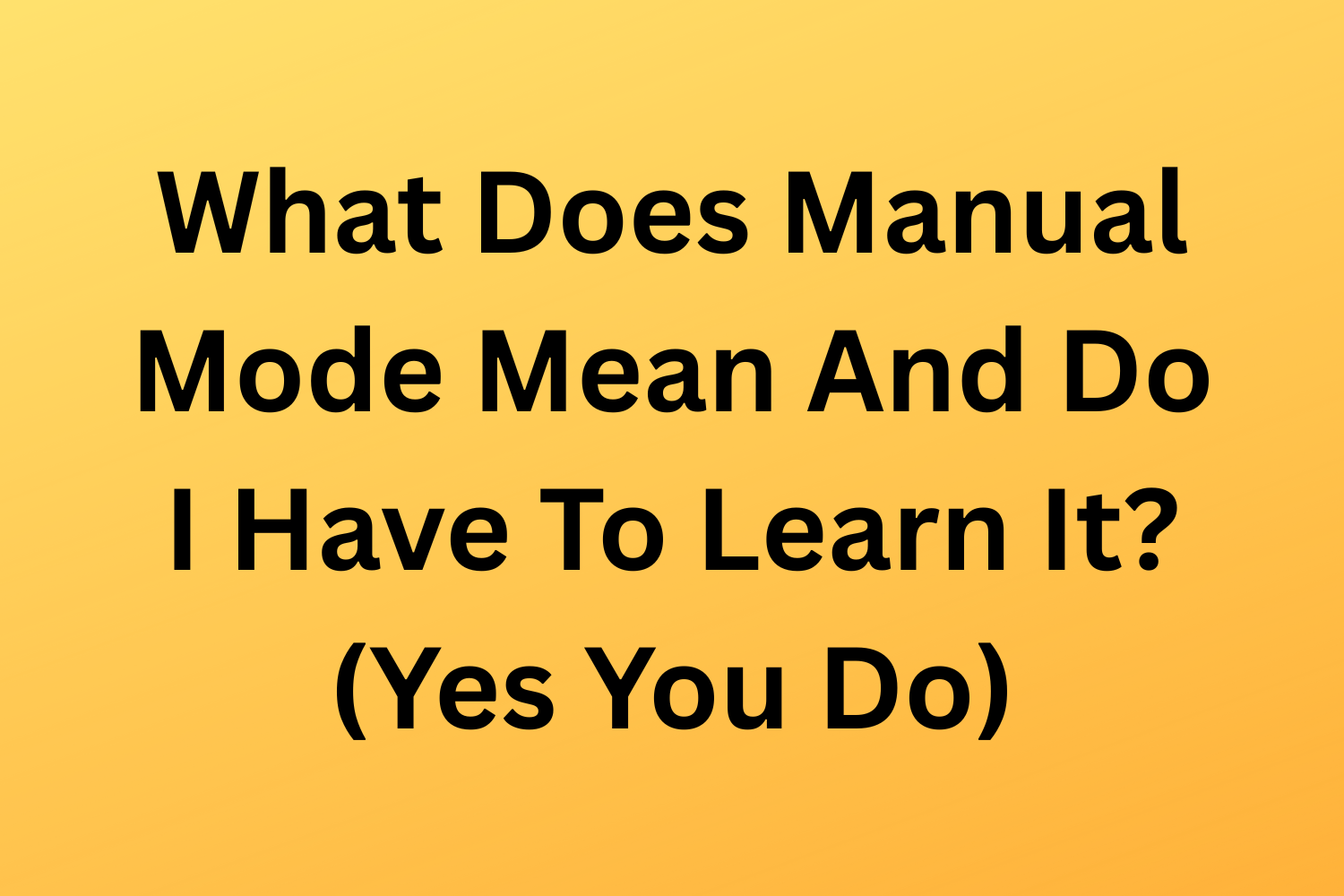
What Does Manual Mode Mean And Do I Have To Learn It? (Yes You Do)
Manual mode is the mode where you set the aperture, shutter speed, and ISO when you take a photo. You decide all the camera settings, not the camera. You should learn how to use manual mode as there are times when you will need it, and understanding manual mode helps you learn the exposure triangle.
You should learn how to use manual mode, but you do not have to use it all the time.

Listener question – I want to go out and shoot in the rain but my camera is not weather proof?
To take photos in the rain safely there are a number of products and techniques that you can use to protect your camera from damage. Some cameras are weatherproof but still need protecting where possible, whereas cameras that are not weatherproofed required further measures to make sure that they are not damaged by rain.
So there are three parts to this
Camera weatherproof or not?
Smart working.
Protective gear.
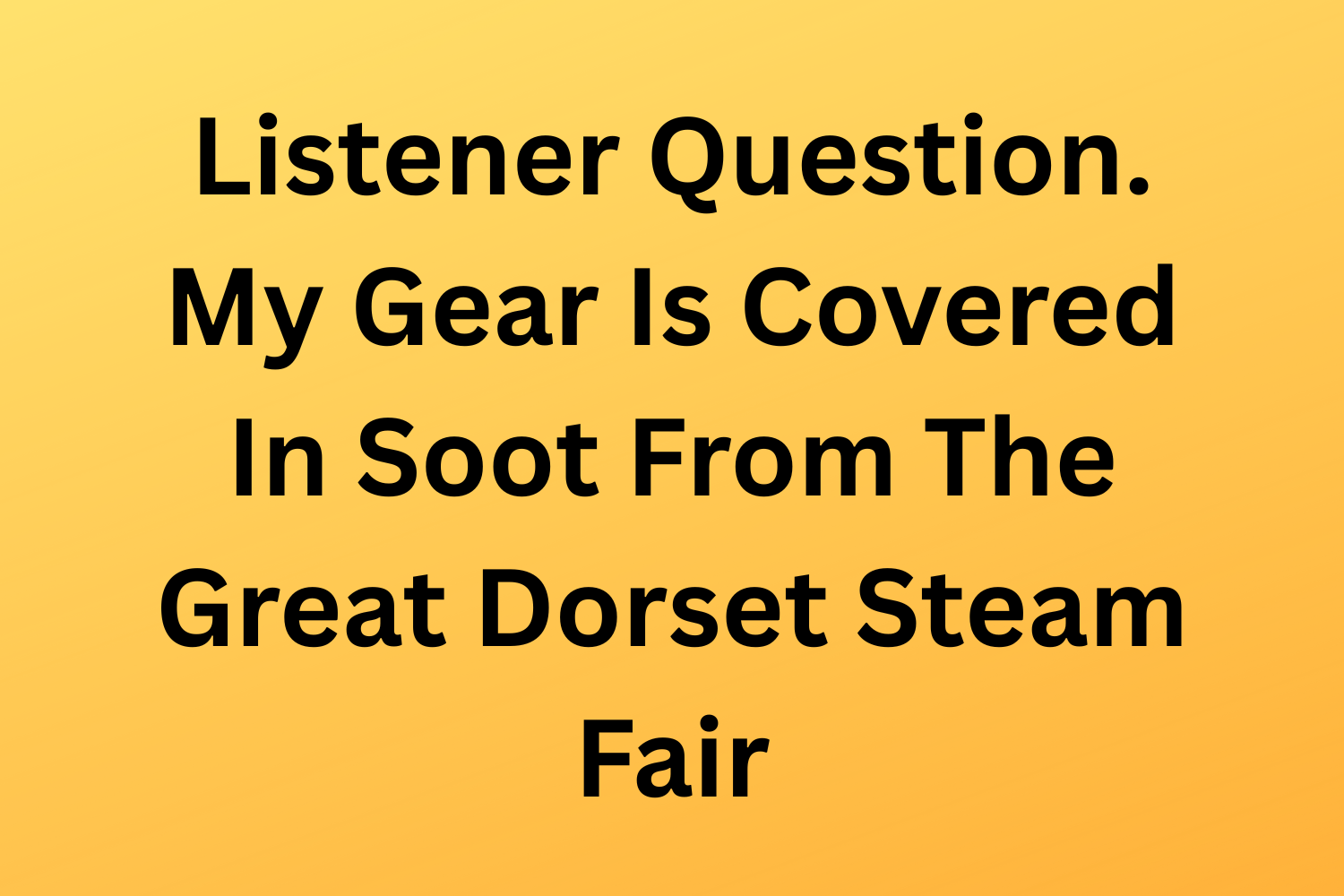
Listener Question. My Gear Is Covered In Soot From The Great Dorset Steam Fair!
To clean a camera and camera lens covered in soot and steam you need to work slowly and gently. Dry the camera out in a warm but natural environment. Remove any dust gently with a small brush. Use a blower/ blower brush to get rid of harder-to-remove bits. Use a magnifying glass to spot unwanted debris. Work slowly. Clean the outside first, remove the lens and see if any soot has got inside and remove that.
Work logically and with care. But, if you have any doubts about doing this pay someone reputable to get your camera cleaned professionally.